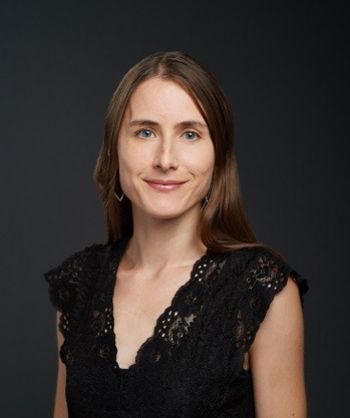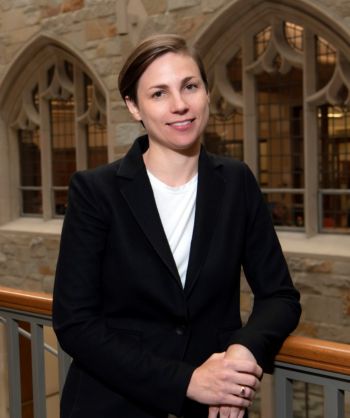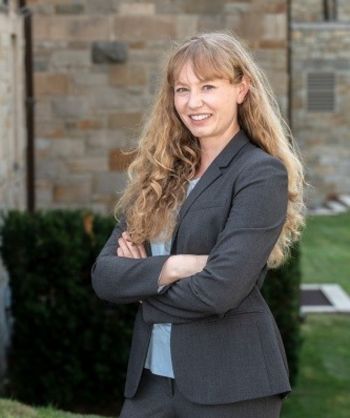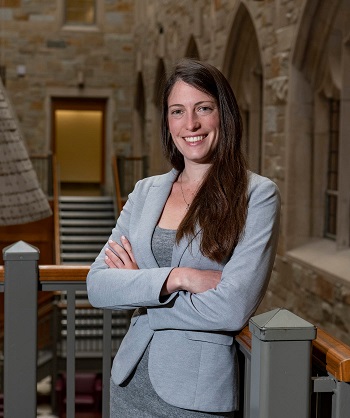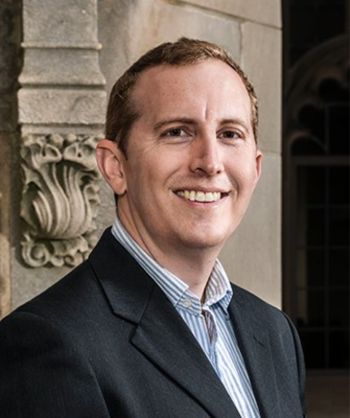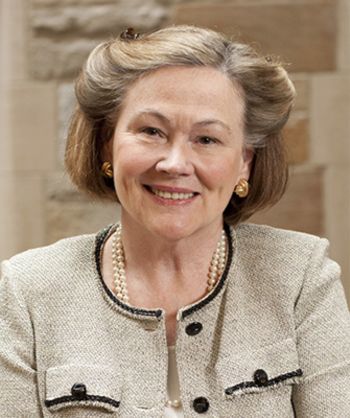Research, Media Impact, and Awards: Spring 2024
This sampling of recent faculty activity at the Boston College Carroll School of Management includes papers published in leading peer-reviewed journals. Among them: Academy of Management Journal, The Accounting Review, Journal of Accounting and Economics, The Journal of Finance, Journal of Financial Economics, Journal of Political Economy, Marketing Science, MIS Quarterly, and others. Also included in this roundup are recent media spotlights on Carroll School faculty research as well as awards and other distinctions.
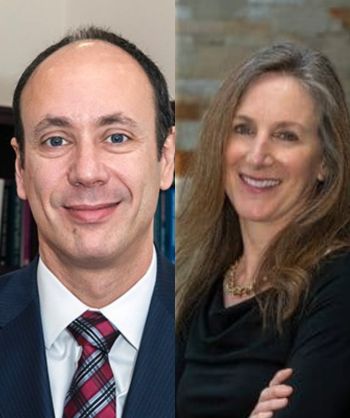
Rui Albuquerque, Mary Ellen Carter
Professor, Finance
Professor and Joseph L. Sweeney Chair, Accounting
The Accounting Review (Forthcoming)
“How Large Is the Pay Premium From Executive Incentive Compensation?”
Coauthors:
Ana M. Albuquerque, Boston University
Qi (Flora) Dong, Kennesaw State University
“We estimate the pay premium associated with CEO incentive compensation. Using explicit detailed U.S. CEO compensation contract data and simulation analysis, we find that CEOs with riskier pay packages receive a premium for pay at risk that represents 13.5 percent of total pay. The premium is positively correlated with proxies for CEO risk aversion, but implied risk aversion values suggest that the premium is economically smaller than suggested by prior studies. We perform our tests using a variety of proxies to measure the variance of pay and find consistent evidence of economically small pay risk premiums. These results are consistent with recent findings suggesting that risk may have a more limited influence over the level of pay than previously thought.”
Vincent Bogousslavsky
Assistant Professor, Finance
Journal of Financial Markets
“Who Trades at the Close? Implications for Price Discovery and Liquidity”
Coauthor:
Dmitriy Muravyev, Michigan State University
“Closing auctions set daily closing prices for U.S. stocks and account for a striking 7.5% of daily volume in 2018, up from 3.1% in 2010. We study closing auctions in the new regime of record volume. Closing auctions appear to match volumes at low cost: closing prices typically match pre-close bid or ask prices, and price impact is lower than during continuous trading. Auction price deviations revert quickly and almost completely, on average. Auction-to-intraday volume spikes on S&P 500 additions and increases permanently afterwards, suggesting that closing volume is fueled directly and indirectly by the growth of indexing and ETFs.”
Jeffrey Cohen
Professor, Accounting
Journal of Management Accounting Research
“The Influence of Controllability and Outcome Valence on Cost-Shifting”
Coauthors:
Dennis Fehrenbacher, University of St. Gallen
Axel Shulz, La Trobe University
Martin Weisner, University of Melbourne
“In a setting that considers both operational and accounting decentralization, we propose that controllability and outcome valence effects (i.e., positive versus negative contractual outcomes for managers) interact to affect managers’ misreporting behavior. Experimental results show that the level of cost-shifting under negative outcome valence is relatively invariant to the amount of control over a project’s results, whereas the decision to engage in cost-shifting under positive outcome valence is contingent upon whether the manager had control or not. We contribute to the management accounting literature on contract framing and misreporting and extend research on how decentralization choices affect managers’ use of private information, with direct implications for practice. Our results suggest that limiting individual managers’ operational control primarily to constrain misreporting may only be beneficial when contracts stipulate positive outcomes for managers.”
Nan Liu
Associate Professor and William S. McKiernan ’78 Family Faculty Fellow, Business Analytics
Manufacturing & Service Operations Management (Forthcoming)
“Design of Patient Visit Itineraries in Tandem Systems”
Coauthors:
Guohua Wan, Shanghai Jiao Tong University
Shan Wang, Sun Yat-sen University
“In healthcare, such as at orthopedic clinics or infusion centers, managing multistage patient visits involves providing personalized visit itineraries with specific appointment times for each service stage. Traditional methods rely on simple adjustments to single-stage scheduling models. These methods are easy to implement, but can significantly hamper operational efficiency in multistage services. To address this, we introduce an innovative optimization modeling framework for prescribing personalized visit itineraries in multistage services. This framework effectively manages the interdependencies among stages, thereby improving patient satisfaction and provider utilization. A case study populated by data from the Dana-Farber Cancer Institute shows that our approach makes a remarkable 28% cost reduction compared to traditional practices. While developed with healthcare in mind, our model is applicable to any service sector with multistage processes, such as consulting and financial services.”
Alan Marcus
Mario J. Gabelli Endowed Professor, Finance
Journal of Banking and Finance
“Mutual Fund Pollution Experience and Environmental Voting”
Coauthors:
Pouyan Foroughi, York University
Vinh Nguyen, University of Hong Kong
"Examining the impact of local air pollution on mutual funds’ voting behavior, we study the possible relationship between mutual fund management’s direct experience with extreme environment events and the fund’s engagements with its portfolio companies on environmental issues. We find that higher air pollution in a fund’s home county increases its propensity to vote in support of shareholders’ environmental proposals. The effect is weakened by fund manager turnovers, and managers’ affiliation with the Republican Party. Conversely, the effect is stronger in more highly contested environmental proposals. Overall, our results suggest that mutual fund management’s direct experience with extreme environment events plays a crucial role in motivating the fund’s environmental engagements.”
Pilar Opazo
Assistant Professor of the Practice, Management & Organization
Book, Routledge Press
“Cultural Flows in High-End Cuisine: From the Periphery to the Center”
Coauthors:
Christel Lane, University of Cambridge
“This book examines the flows of culinary knowledge and practitioners from hitherto culturally peripheral locations to two cities at the global center – London, and New York. It defines it as a process of reverse globalization, entailing global counter-flows. The book focuses on both chefs and cultural intermediaries as the agents of culinary change, as well as on the effects of such change on both the culinary fields of chefs’ host cities and countries of origin. Through the voices of chefs, and other industry insiders, this unprecedented focus on dining invites readers to rethink understandings of high-end and ethnic cuisines, as well as of the conventions and principles that shape the contemporary field of gastronomy and fine-dining.”
Bess Rouse
Associate Professor and Hillenbrand Family Faculty Fellow, Management & Organization
Academy of Management Journal
“Navigating the Paradox of Promise Through the Construction of Meaningful Career Narratives”
Coauthors:
Gregory T. Fetzer, University of Liverpool
Spencer H. Harrison, INSEAD
“Working with a prominent mentor can offer many benefits to one’s career: mentors provide skills, resources, and values that leave a lasting imprint. Yet, these promising starting points also present a puzzle as people make sense of their careers further on: they must acknowledge their association with their prominent mentor, without being overshadowed by them. We refer to this tension as the paradox of promise. Through a qualitative study of former employees at the Eames Office, we examine how individuals navigate the paradox of promise as they construct retrospective career narratives. We find that individuals narrate their formative experience as imprints, but with two distinct emphases—values-dominant imprints versus skills-dominant imprints. Individuals then narrate their later career experiences by reprinting, reinforcing the existing meaning or finding new meaning in relation to their imprint; we induced three reprinting practices: (a) embracing values, (b) contrasting values, and (c) supplanting values. Our study contributes to interpretive perspectives of career success and mentor relationships, and how meaningfulness is constructed over the career.”
Academy of Management Review (Accepted)
“Group Flow: A Theory of Group Member Interactions in the Moment and Over Time”
Coauthors:
Markus Baer, Washington University in St. Louis
Raymond Lavoie, New Mexico State University
“Groups often struggle to live up to expectations. However, there are times when groups are said to be in flow—when interactions appear effortless as group members contribute in synchrony to reach peak levels of collaborative performance. Existing research on group effectiveness has provided limited insight into the momentary and changing pattern of group member interactions that enable such performance. We adopt a process perspective to unpack the temporal dynamics of group flow—a state characterized by full, seemingly effortless attention, shared positive emotional arousal, and additive, swift contributions—to theorize the momentary interactions through which group flow emerges. In doing so, we highlight the importance of the timing of contributions, how contributions relate to each other, and group momentum. Lastly, we specify how group flow enhances group effectiveness, including peak collaborative performance, group viability, and individual well-being.”
Sandra Waddock
Professor, Management
Galligan Chair of Strategy and Carroll School Scholar of Corporate Responsibility
Book, Business Expert Press
“Catalyzing Transformation: Making System Change Happen”
"Catalyzing Transformation describes innovative organizing processes that anyone can use to catalyze purposeful whole system transformational change. Catalyzing Transformation describes processes of connecting, cohering, and amplifying by transformation catalysts. Transformation catalysts—who could be you or me—work to organize purposeful and self-aware transformation systems capable of tackling a range of complex systemic challenges.”
Hanyi (Livia) Yi
Assistant Professor, Finance
Journal of Financial Economics
“Deputizing Financial Institutions to Fight Elder Abuse”
Coauthors:
Bruce Carlin, Rice University
Tarik Umar, Rice University
“Permissive laws deputize financial professionals to screen for misbehavior without providing explicit incentives. These are very common in financial markets. To evaluate their effectiveness, we exploit the staggered adoption of the 2016 Model Act provisions intended to curb elder abuse. We find a drop in reports of abuse by financial professionals to the Department of Treasury and, separately, in financial crimes against the elderly as monitored by the FBI. The effect is stronger where the elderly are more isolated. Our results highlight the role financial professionals play in combating social problems and the impact of permissive policies.”
Pierluigi Balduzzi
Professor, Finance
Journal of Monetary Economics
“Credit Constraints and Firms’ Decisions: Lessons from the COVID-19 Outbreak”
Coauthors:
Emanuele Brancati, Sapienza University
Marco Brianti, University of Alberta
Fabio Schiantarelli, Boston College
“Using novel survey data on Italian firms’ expectations, collected just before and after the beginning of the COVID-19 outbreak, we investigate the role of credit constraints in the transmission of adverse economic shocks. Our results show that credit-constrained firms plan to charge higher prices than unconstrained ones while expecting a larger fall in quantities. When we consider realized outcomes, however, these differences are less pronounced. This evidence is consistent with the credit programs implemented during the crisis being largely unanticipated at its outbreak and benefiting constrained firms relatively more.”
Curtis Chan
Assistant Professor, Management & Organization
Academy of Management Journal
“Balancing Professional Autonomy and Managerial Goals Amid Broad Technology Adoption Pressures: Intraprofessional Segmentation at a Finnish School"
Coauthor:
Tomi Koljonen, University of Liverpool
“Managers often desire to see their organization adopt new technologies but depend on autonomous professionals to use such technologies in practice. In seeking technology adoption, organizations thus must find a middle ground between professional autonomy and managerial goals. Extant scholarship has examined such middle grounds but has focused on adoptions of specific technologies. However, amid broad technology adoption pressures—expectations on organizations lacking precise prescriptions, success criteria, and sanctions—novel middle-ground approaches might emerge. Our study contributes to scholarship on occupations and technology by showing how intraprofessional segmentation can help organizations align technology with professional work amid broad technology adoption pressures.”
Megan Hunter
Assistant Professor, Marketing
Marketing Science
“Multiattribute Search: Empirical Evidence and Information Design”
Coauthor:
Pedro Gardete, NOVA University Lisbon
“We investigate simple online search patterns that suggest that the dualistic view of fixed sample vs. sequential search modes is the likely result of coarse data combined with methodological convenience. In contrast with these paradigms, we find consumers are selective about the product attributes they inspect, they revisit items to acquire additional information, and often convert without collecting all available data about the selected alternatives. Our substantive motivation is the problem of providing information to consumers in a market with differentiated products. We propose a new model of gradual consumer search based on simulated beliefs and “in tandem” decision-tree and likelihood computation that allows us to characterize the full search problem in contexts with moderate numbers of alternatives. We find that the seller’s incentives to engage in search design activities tend to match the consumers’.”
Nadya Malenko
Professor, Finance
The Journal of Finance
“Trading and Shareholder Democracy”
Coauthors:
Doron Levit, University of Washington
Ernst Maug, University of Mannheim
“We study shareholder voting in a model in which trading affects the composition of the shareholder base. Trading and voting are complementary, which gives rise to self-fulfilling expectations about proposal acceptance and multiple equilibria. Prices and shareholder welfare can move in opposite directions, so the former may be an invalid proxy for the latter. Relaxing trading frictions can reduce welfare because it allows extreme shareholders to gain more weight in voting. Delegating decision-making to the board can help overcome collective action problems at the voting stage. We also analyze the role of index investors and social concerns of shareholders.”
Richard Nielsen
Professor, Management & Organization
Business and Professional Ethics Journal
“Through An Aristotelian Lens, Potential Reforms of the Leveraged Buyout Business Model: Preserving Wealth Expansion and Reducing Wealth Transfers and Wealth Destruction”
Coauthor:
Elizabeth Hood, PhD candidate, Boston College
“The overall objectives of this article are to help the reader see and understand through Aristotelian lenses: (1) positive and negative aspects of the Leveraged Buyout (LBO) business model; and, (2) how LBO practices can be reformed so as to retain positives and reduce negatives. Aristotelian lenses considered are: wealth acquisition through wealth expansion, wealth creation, and wealth transfers; distributive and corrective justice; and, a dialectic analytic process of retaining positives, reducing negatives, and reforming. Key net positive wealth expansion aspects of the model are discussed with respect to: profitability for the owners, managers, and investors of LBO firms; potential productivity improvements on the cost and revenue sides; and, potentially greater credit availability. Negative wealth transfer and destruction aspects with respect to: a relatively high rate of bankruptcies in some countries and in economic downturns; LBO firm gains without responsibility for losses; wealth transfers from employees, creditors, ordinary vs “carried interest” taxpayers; and, damaged wealth expansion and creation capabilities of acquired organizations are discussed.”
Journal of Ecumenical Studies (Accepted)
“Ecumenical Similarities Between Ignatian and Quaker Dialogic Leadership Principles, Processes, and Application Within Large Secular University Contexts”
“Michael Sheeran, S.J., in his book Beyond Majority Rule: Voteless Decisions in the Religious Society of Friends (commonly called “Quakers”) and in his “Ignatius And The Quakers” article found important ecumenical similarities between Ignatian and Quaker dialogic leadership and participative decision making principles and processes. These methods are in a sense naturally and organically ecumenical. Sheehan referred to the core “idea that there is that of Go[o]d in everyone and in all things” and the corollary “communal discernment” participative leadership and decision making method. Relationships between Ignatian and Quaker “Seeking that of Go[o]d In All Things” and the “Servant Leadership” method; and, between “Communal Discernment” and the “service-based participative group decision making” process methods are considered. These core principles and processes are related to what has been termed “wider ecumenism,” “bottom-up ecumenism,” and “tactical ecumenism.” Both large Jesuit and Quaker universities have experienced similar marginalizations and even disappearance of meaningful Ignatian and Quaker presence and mission. These process methods can incorporate the key ecumenical principles within large university secular contexts and help preserve, adapt, harmonize, and even partner core cross-tradition and ecumenical foundations even when the core principles are in some disconnect from contemporary secular organizational cultures and systems.”
Michael Pratt
O'Connor Family Professor, Management & Organization
Organization Science (Accepted)
“A Part of, or Apart from, Me?: Linking Dynamic Founder-Venture Identity Relationships to New Venture Strategy”
Coauthors:
Eliana Crosina, Babson College
Hila Lifshitz, University of Warwick
“Based on a three-year inductive field study of first-time founders, we reveal the dynamic identity relationships that tie founders to their ventures: what such relationships comprise, how they evolve over time, and with what strategic implications for the development of new businesses. Specifically, we found that such relationships comprise both identification and construals, which capture the degree to which founders saw their ventures as self-defining and founder-venture psychological distance. Construals, and shifts in construals over time, were critical in explaining how entrepreneurs handled venture-related challenges, as well as how they strategically (re)focused their ventures in terms of scope, whether by diversifying or specializing. By explaining these dynamics, we contribute to research on entrepreneurial identity as well as to construal level theory. In addition, as we distinguish construals from identification, we highlight the importance of construals for understanding identity relationships beyond entrepreneurship.”
Sebastian Steffen
Assistant Professor, Business Analytics
MIS Quarterly (Accepted)
“Human Capital Acquisition in Response to Data Breaches”
Coauthors:
Sarah Bana, Chapman University
Erik Brynjolfsson, Stanford University
Wang Jin, Massachusetts Institute of Technology
Xiupeng Wang, Boston University
“As data security threats become more frequent and costly, it is increasingly important to understand how firms strategically acquire human capital in response to data breaches. We analyze such threats by combining unique information on data breach events with detailed firm-level job posting data and show that breached firms significantly increase their demand for cybersecurity workers in the quarters following a breach. To differentiate the varied cybersecurity roles that firms seek, we use the widely-used Cybersecurity Workforce Framework of the National Initiative for Cybersecurity Education (NICE) and find that firms predominantly hire for managing and developing cybersecurity strategy, and for identifying, analyzing, and mitigating threats to IT systems. We further observe that firms respond to breaches by hiring not only cybersecurity workers but also public relations workers, with the latter occurring more quickly, suggesting that firms rely on these workers to manage trust and external communications. To improve the interpretation of a causal relationship between data breaches and increased investment in cybersecurity-related human capital, we conduct tests of parallel trend and falsification tests using non-cyber data breaches, propensity score matching, and staggered Difference-in-Difference methods for multiple treatment timing and heterogeneous treatment effects. Overall, we demonstrate the important role of human capital investments in firms’ post-breach incident responses.”
Milena Wittwer
Assistant Professor, Finance
Journal of Political Economy
“Centralizing Over-The-Counter Markets?”
Coauthor:
Jason Allen, Bank of Canada
“In traditional over-the-counter markets, investors trade bilaterally through intermediaries. We assess whether and how to shift trades on a centralized platform with trade-level data on the Canadian government bond market. We document that intermediaries charge a markup when trading with investors and specify a model to quantify price and welfare effects from market centralization. We find that many investors would not use the platform, even if they could, because it is costly, competition for investors is low, and investors value relationships with intermediaries. Market centralization can even decrease welfare, unless competition is sufficiently strong.”
Benjamin Yost
Assistant Professor, Accounting
Journal of Accounting and Economics (Forthcoming)
“Litigation Risk and Strategic M&A Valuations”
Coauthors:
Claudia Imperatore, Bocconi University
Gabriel Pündrich, University of Florida
Rodrigo S. Verdi, Massachusetts Institute of Technology
“We study the role of litigation risk in M&A valuations. Specifically, we hypothesize that litigation risk leads to strategic valuations in fairness opinions (FOs) obtained in M&A transactions. Employing a regulatory shock to merger litigation risk and focusing on the most common valuation techniques – peer firm comparables and DCF analysis – we find that target-sought FOs exhibit lower valuations when litigation risk is high. The effect is concentrated in deals with greater agency conflicts between target management and outside shareholders. Furthermore, downward-biased valuations reduce appraisal litigation but are also associated with lower premiums. In contrast to prior work suggesting that target-sought FOs are used to negotiate a higher takeover price, our findings imply that they are used, at least in part, to mitigate litigation risk and facilitate successful deal completion. Our findings are relevant to academics, practitioners, and regulators interested in M&A price formation, and highlight the role litigation plays therein.”

Mary Ellen Carter, Lian Fen Lee
Professor and Joseph L. Sweeney Chair, Accounting
Associate Professor, Accounting
Working Paper
“Real Effects of the Proposed SEC Climate Disclosure Rule”
Coauthor:
Enshuai Yu, PhD Candidate, Boston College
“We investigate the real effects of the SEC’s proposed climate disclosure rule. We hypothesize that the threat of requiring Scope 3 emissions disclosure increases affected firms’ preference for greater control over production and GHG emissions, which renders outsourcing to foreign countries less desirable. Using difference-in-differences analyses, we find evidence that treated firms reduce imports following the proposed rule, relative to control firms. The reduction in imports is concentrated in firms for which disclosing Scope 3 emissions may be costlier: with material Scope 3 emissions, not voluntarily disclosing GHG emissions, in industries with fewer supportive comments on mandating disclosure of Scope 3 emissions in the proposal, and in imports from more pollutive countries. The reduction in imports is also concentrated among firms with greater ability to reduce foreign outsourcing: with less reliance on imports of minerals, with higher excess production capacity, and without publicly stated GHG emissions reduction targets. Finally, there is some evidence that, following the SEC’s proposed rule, affected firms increase in-house production and improve their environmental efforts. Collectively, our findings suggest that the SEC’s proposed climate disclosure rule induces real changes in corporate decisions.”
Alicia Munnell
Peter F. Drucker Chair of Management Sciences
Director of the Center for Retirement Research
Working Paper
“How Will Employer Health Insurance Affect Wages and Social Security Finances?”
Coauthors:
Anqi Chen, Center for Retirement Research at Boston College
Diana Horvath, Center for Retirement Research at Boston College
“The rising cost of employer contributions to employee-sponsored health insurance (ESHI) can slow wage growth and erode the Social Security wage base. Both these effects were evident in the decades before 2005, as ESHI increased as a share of compensation. Fortunately, the ratio of ESHI contributions to compensation plateaued after 2005, stabilizing wages and halting the erosion of the share of labor compensation subject to Social Security’s taxable base. The question is whether the stabilization of employer contributions as a share of compensation is temporary or permanent. The analysis used the Medical Expenditure Panel Survey (MEPS) to determine why ESHI contributions rose as a share of compensation prior to 2005 and why this ratio stabilized in recent years. These findings, combined with some speculation about the impact of the Affordable Care Act (ACA) and the COVID pandemic, are used to project the ratio of ESHI to compensation over the next decade.”
1. “Can Incentives Increase the Writing of Wills? An Experiment” with Jean-Pierre Aubry and Gal Wettstein
2. “The Case for Using Subsidies for Retirement Plans to Fix Social Security” with Andrew G. Biggs and Michael Wicklein
3. “A Multiple Employer Plans Primer: Exploring Their Potential to Close the Coverage Gap” with Anqi Chen
Cheng (Jason) Jiang
Assistant Professor of the Practice, Finance
Working Paper
“How Technology Investment Drives Community Bank Consolidation”
Coauthors:
Jonathan Scott, Temple University
Zhaowei Zhang, Temple University
“From 2011 to 2019, the number of bank charters fell by nearly one-third, from 7,357 to 5,177, with community banks accounting for three-quarters of this decline. In a new paper, we present compelling evidence that the decline stems largely from bank mergers driven in part by a desire to create economies of scale through technology investments. The need for technology investment has been propelled by regulatory requirements, consumer preference for digital services, and the pursuit of operational efficiencies, such as streamlined loan processing.”
Benjamin Yost
Assistant Professor, Accounting
Working Paper
“Firm Visibility and Acquisition Likelihood: Evidence from Seeking Alpha Coverage”
Coauthors:
Pu Gu, PhD candidate, Boston College
Yuan Zou, Harvard University
“This study investigates whether social media coverage influences a firm’s likelihood of being acquired. Specifically, we hypothesize that coverage of a firm on the Seeking Alpha platform raises its visibility to potential acquirers and M&A advisers (i.e., investment banks), increasing the likelihood of becoming a target. Employing a novel setting in which Seeking Alpha contributors were incentivized to write articles about small firms, which historically had received relatively little coverage, we find evidence consistent with our prediction. Moreover, the increased coverage leads to deals between acquirers and targets that are 1) more geographically distant from each other, and 2) less likely to be in the same industry, consistent with a firm visibility channel. We validate our inference by showing such coverage leads to increased financial statement downloads by potential acquirers and investment banks. Overall, our findings point to social media serving an important role in elevating firms’ market visibility and enhancing managers’ awareness of potential investment opportunities.”
“Corner-Cutters: Personally Tax Aggressive Executives and Corporate Regulatory Violations”
Coauthor:
Enshuai Yu, PhD candidate, Boston College
“This study investigates the relation between personally tax aggressive executives and corporate regulatory violations across a wide range of areas. We identify personally tax aggressive executives as those who consistently make uncommonly well-timed corporate stock donations, which prior work has shown are the result of insiders exploiting their private information and/or fraudulently backdating gifts to dates with a high stock price. We hypothesize and find evidence that executives with a propensity to “cut corners” on tax laws also make corporate-level decisions leading to more regulatory violations, such as underinvesting in workplace safety and environmental protection measures. We find the link between tax aggressive executives and corporate violations is mitigated in the presence of strong outside monitors and influential stakeholders. Moreover, we find that violations rise (fall) when a tax aggressive executive joins (leaves) the firm, supporting a causal interpretation. Our study contributes to the literature by 1) introducing a novel approach to identifying personally tax aggressive executives that continues to be useful in the post-SOX era, and 2) providing evidence that such executives drive increased regulatory violations in a wide range of areas.”
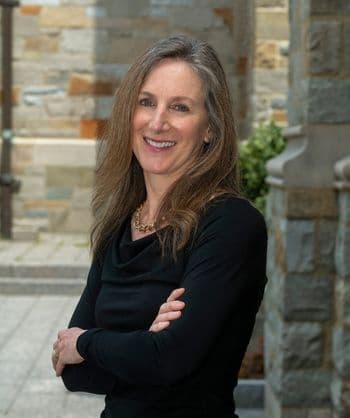
Mary Ellen Carter, the Joseph L. Sweeney Chair and professor of accounting, was quoted in a Wall Street Journal article about Elon Musk's $56 billion all-stock pay package at Tesla, explaining how the valuation "blows up into crazy, ridiculous amounts." Meanwhile, Bloomberg quoted Carter in a piece about how Boeing's safety issues are prompting investors to scrutinize their CEO's $33 million package. She also commented for MarketWatch about the Reddit CEO's “strange” performance metrics following the company’s recent IPO. In addition, Carter coauthored a report that informed Boston Mayor Michelle Wu about the potential impact of tax incentives on jumpstarting construction of stalled housing projects. The report indicated that tax abatement would not be enough for developers to unfreeze construction, according to The Boston Globe.
Working dads who take paternity leave are seeing a rise in workplace microaggressions from management and are worried that prioritizing parenthood will hurt their careers. Brad Harrington, director of the Boston College Center for Work and Family, told Good Housekeeping and Fortune that embracing more equitable benefits like parental leave is a win-win for employers and families alike.
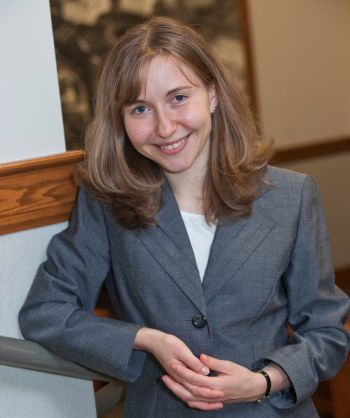
The ownership structure of startup companies is attractive to entrepreneurs for its flexibility and creative freedom, but research by Nadya Malenko suggests leadership board dynamics change once venture capitalists enter the picture. In an article for the European Corporate Governance Institute, the finance professor explains that independent directors added to leadership teams play a critical role in navigating these shifting roles and mitigating conflict.
Sam Ransbotham weighed in on the best practices and future of AI technologies in an article for Harvard Business Review. A professor of business analytics, he also discussed the stigmas of using emerging technologies like self-driving cars in an article for Marketplace and highlighted the key takeaways from the eight seasons of his podcast, Me, Myself and AI, in an article for Boston Consulting Group.
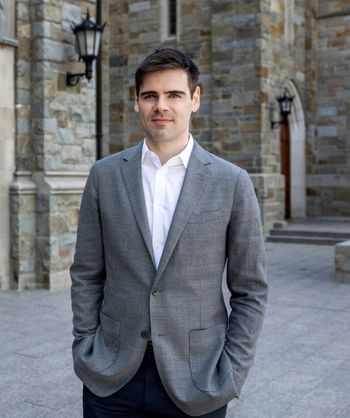
In an article for Harvard Business Review, Sebastian Steffan and colleagues offer some good news for fans of working from home. According to their research, firms that are flexible with remote work may perform better than those that reject it, especially as extreme weather becomes an increasingly prevalent roadblock to in-person work. Steffan is an assistant professor of business analytics.
Thinking of calling your workers heroes? Research by Curtis Chan, assistant professor of management and organization, suggests doing so could cause employee backlash. In an article for Harvard Business Review, Chan and collaborators warn that the high praise may have unintended consequences, with employees viewing the accolades as disingenuous.

Cash dividends are attractive to shareholders, but they can sometimes prove to be a worse outcome than no payout at all. Research by two finance professors, Samuel Hartzmark (a Hillenbrand Family Faculty Fellow) and David Solomon (the Giuriceo Family Faculty Fellow), was cited in Reuters, and suggests some investors do not fully understand the trade-off between dividends and capital gains. Hartzmark was also featured on a recent episode of the Rational Reminder Podcast as well as in articles for Marketplace and Principles for Responsible Investment, where he weighed in on issues surrounding ESG.
Featured in The Wall Street Journal, The New York Times, Forbes, The Boston Globe, Bloomberg Law, and other outlets, Alicia Munnell, the Peter F. Drucker Chair of Management Sciences and director of the Center for Retirement Research, has contributed to the discourse surrounding topics like Social Security benefits and 401(k) retirement plans. A special report she coauthored about ending 401(k) tax benefits and using the revenue to repair Social Security was also highlighted in Pensions & Investments. Munnell and her colleagues at the center have also produced multiple recent issue briefs, on matters such as the future of older employees in the workplace and the National Retirement Risk Index.
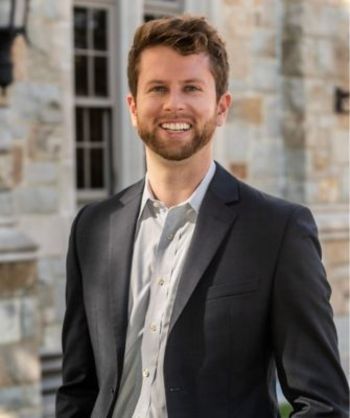
Benjamin Rogers and colleagues say that viewing your life as a “Hero’s Journey” could add meaning to it. The assistant professor of management and organization has been researching the effect that stories have on our lives and catching the attention of publications including Nautilus Magazine, Inc. Magazine, and Forbes.
Rising temperatures could have an impact on how firms locate their employees, says Tuomas Tomunen, an assistant professor of finance, in an article for Vox EU Centre for Economic Policy Research. Relocating to a more hospitable climate may be a way for firms to alleviate the effects of climate change on productivity and workplace risks, but it is not always attainable for companies with limited resources.

John Gallaugher told the Boston Globe that Uber’s shutdown of alcohol delivery app Drizly was “heartbreaking.” Gallaugher, an associate professor of business analytics, was a mentor to the two Boston College students who started Drizly prior to its $1 billion acquisition by Uber in 2021.
For 30 years, research by Eugene Fama and Kenneth French has been widely used in the finance world to inform decisions and research about stock market returns. In an article for Bloomberg, visiting assistant professor of finance Mathias Hasler explains the research from his forthcoming article in Critical Finance Review, in which he examines alternative decisions about the original data from Fama and French to estimate how the value premium differs.

Michael Pratt, the O’Connor Family Professor of management and organization, was featured on an episode of Eudaimonic by Design’s podcast, Meaningful Work Matters. Pratt discussed his decades of research revolving around how individuals find meaning in work and how organizations can facilitate deeper meaning among employees.
Bloomberg ran an interview with Seidner University Professor Paul Romer in which he warned that overconfidence in AI could lead to the same mistakes that triggered the crypto currency bubble. Romer also assessed the future of AI in a conversation with Carroll School Business Analytics Professor Sam Ransbotham that aired on Ransbotham's podcast, Me, Myself, and AI, presented by the MIT Sloan Management Review. A Nobel Prize winner in economics, Romer teaches in the Finance Department at the Carroll School, where he also directs the Center for the Economics of Ideas.

Nancy Xu, an assistant professor of finance, was featured on an episode of the Centre for Economic Policy Research’s podcast, VoxTalks Economics, to talk about her research on Initial Jobless Claims, the weekly data released by the US Department of Labor about claims filed for unemployment benefits. Xu and colleagues found that during the pandemic, when negative fiscal news was reported more often by the media, investors expected more government support and drove up aggregate stock prices.
Jeffrey Cohen, a professor of accounting, received the Notable Contributions to Audit Literature Award from the American Accounting Association’s Auditing Section. Cohen and colleagues won the award for their paper “PCAOB Inspection: Public Accounting Firms on 'Trial',” which was published in Contemporary Accounting Research.

OnRamp to Finance, a textbook written by Drew Hession-Kunz, was published by McGraw Hill. Hession-Kunz, a senior lecturer of finance, says the book gives students without a finance background access to the complex subject.
The Academy of Management Discoveries named the paper, “The Growth Mindset at Work: Will Employees Help Others to Develop Themselves?”—coauthored by Benjamin Rogers, assistant professor of management and organization—its Most Read Article of 2023.
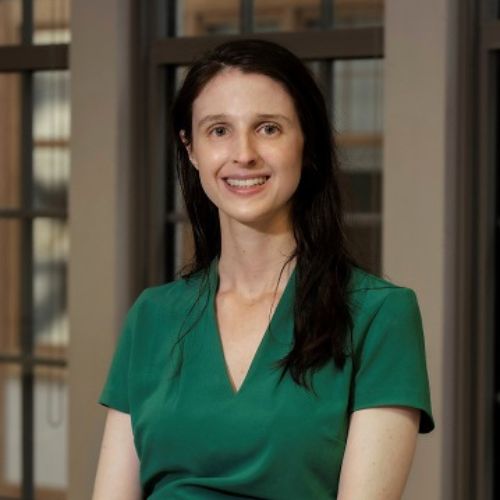
Vanessa Conzon has been named a 2024-2025 Early Career Fellow for the Work and Family Researchers Network. The fellowship program provides support to recent doctoral recipients to advance their research and careers. Conzon, who is an assistant professor of management and organization, also received the Above and Beyond the Call of Duty reviewer award from the Organization and Management Theory Division of the Academy of Management, which recognizes reviewers for their helpfulness, civility, extensiveness, and insight of reviews.
Do Yoon Kim, an assistant professor of business analytics, was named an outstanding reviewer by STR, the strategic management division of the Academy of Management.

Milena Wittwer, an assistant professor of finance, was named a group member of the Finance Theory Group, which aims to foster and advance theoretical research in financial economics.
Samuel Hartzmark, a Hillenbrand Family Faculty Fellow and professor of finance, won the 2023 Jack Treynor Prize along with a colleague for their paper “Counterproductive Sustainable Investing: The Impact Elasticity of Brown and Green Firms.”
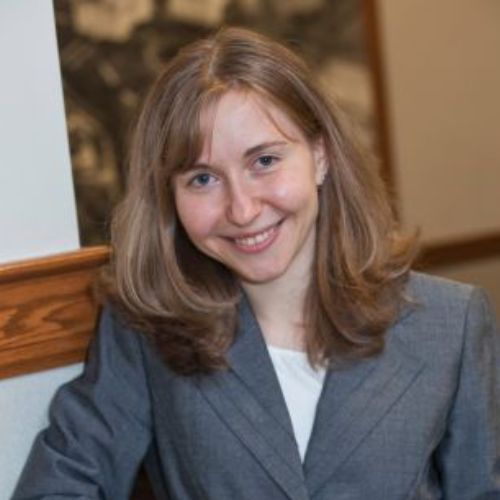
Nadya Malenko, a professor of finance, was elected as a new member of the Foundation for Advancement of Research in Financial Economics.
Benjamin Yost, an assistant professor of accounting, received the Edmund Outslay/JATA Conference Best Discussant Award from the Journal of American Taxation Association (JATA). The award was given for his discussion of “Sharing the Wealth: The Effects of Announced TCJA Bonuses on Employee Pay Satisfaction” at the 2023 JATA Conference.






